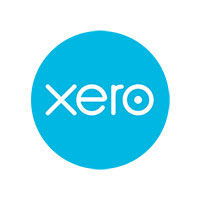 With the resurgence of the virus in September, the introduction once again of restrictions and the coming to the end of the current job retention scheme, it was inevitable that some further support would be required to encourage employers to retain as many jobs as possible.
With the resurgence of the virus in September, the introduction once again of restrictions and the coming to the end of the current job retention scheme, it was inevitable that some further support would be required to encourage employers to retain as many jobs as possible.
Having committed to not extending the current scheme beyond 31 October 2020, the Chancellor had to come up with an alternative, the Job Support Scheme. What then is the difference between the two schemes?
Both schemes are intended to help employers keep staff and avoid mass redundancies. They both do this by way of the Government partially funding employee wages, subject to a cap. A key difference in the schemes, apart from the level of funding from government is that under the new scheme, the employee is expected to do at least some work, a minimum of 33% of their normal hours. This is an important feature, and is designed to try and target support to jobs that are “viable”, that is roles which can continue, albeit at a reduced level but where some support is needed.
Under the Job Support Scheme employees will be required to work at least one-third of their normal hours. The Government will only fund a third of employee wages attributable to the hours the employee does not work, so that is maximum funding of 22% of the employee’s pay capped at £697.22 per month. This is significantly less than under the current scheme.
Whilst the Job Retention Scheme was open to any business, regardless of size or sector. The Job Support Scheme is more focussed. All small and medium-sized enterprises (SME) will be able to make use of the scheme, but larger businesses will only be able to do so if they can show that their turnover has been reduced. In addition, as the Job Support Scheme is designed to protect jobs, employees on the scheme cannot be given notice of redundancy
The New Scheme
To date the only detail available is contained in the factsheet issued on 24 September 2020.
The scheme applies from 1 November 2020 to 30 April 2021.
Any employee included on an RTI return submitted by the employer on or before 23 September 2020, will be eligible to be included in a claim, subject to meeting the conditions.
The employee must work at least 33% of their “usual hours”, the definition of ‘usual’ hours is awaited.
The employee will not have to work one third of every week, there will be flexibility, as long as each period containing some work lasts for at least seven days.
The employer will have to pay the employee for the actual hours worked according to their normal terms of employment that is at the full rate, not the 80% rate which furloughed employees may have agreed to take.
Of the balance of up to two thirds of usual hours, the government will fund 33%, the employer 33% and the employee 33%. So the cost of the non-working time is born equally by the employer, the government and the employee. However, the government’s contribution is capped at £697.22 per month per employee.
In summary, the employer funds just over 55% of the employee’s normal pay, the government just over 22% and the employee takes a 22% pay cut. The employer will also have to fund all of the national insurance and minimum pension contribution.
Claims will be made through an online portal which is expected to be available in December. Unlike the current scheme, a claim can only be made once the employee is paid and the RTI submission made.
Job Retention Bonus?
The previously announced Job Retention Bonus is being retained. The bonus is designed to encourage employers to retain their staff who are, or have been, furloughed. Employers will be entitled to £1,000 for each previously furloughed employee still on the payroll at 31 January 2021. The only condition is that eligible employees earn at least £520 a month on average between 1 November 2020 and 31 January 2021.
Currently, the only detail available on the Job Support Scheme is the factsheet released on 24 September 2020. Please click here to access the factsheet. Further guidance is expected later this month.
Please contact Mark Wildi or Sherry Taylor for more information; on 01689 877081 or complete our online form.
Registered as Auditors in the United Kingdom by the Association of Chartered Certified Accountants.




